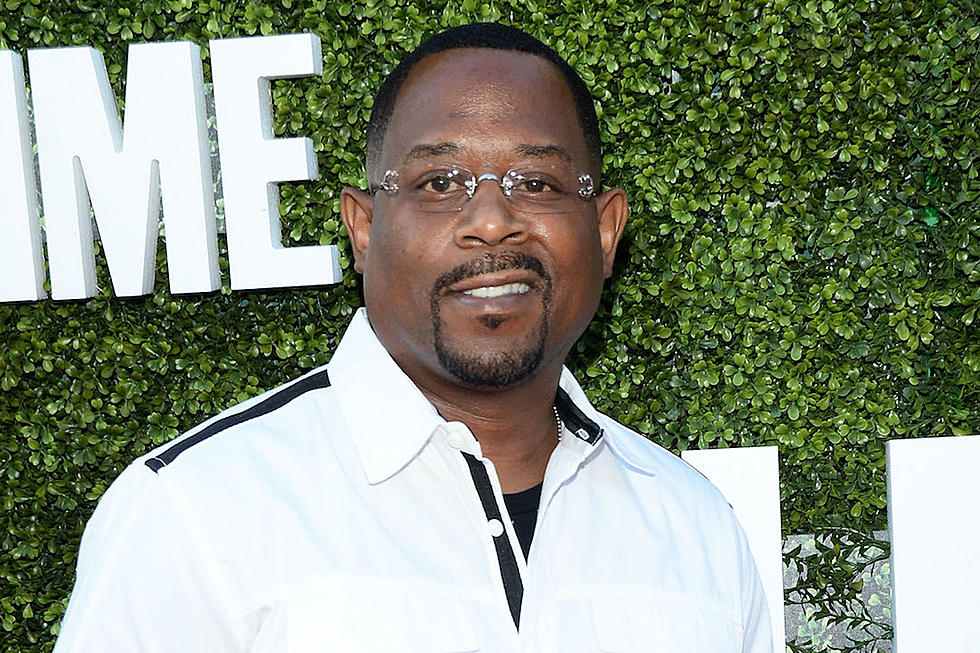
‘Girls Trip’ Review: The Filthiest and Funniest Comedy of the Summer
Four women, one weekend, a lot of alcohol, and more dick jokes than you can count. It’s the perfect recipe for a raunchy comedy, and it makes Girls Trip the funniest, filthiest, and most feminist comedy of the summer.
It’s the latest in a growing sub-genre of R-rated female-led comedies, making it impossible to avoid comparisons to Bridesmaids, Trainwreck, Bad Moms, and Rough Night. But Girls Trip isn’t just notable for its foul-mouthed sense of humor; you can see women being nasty on any episode of Broad City. The latest from director Malcolm D. Lee (The Best Man Holiday), tells a story that celebrates black sisterhood, female sexuality, and most rewardingly, self-respect.
Written by Kenya Barris (Black-ish) and Tracey Oliver (Barbershop: The Next Cut), Girls Trip opens on a quartet of college best friends who call themselves the Flossy Posse. A montage flashes through the years documenting the women as they slowly grow apart. Ryan (Regina Hall) is now a best-selling author pegged as the next Oprah, flashing big smiles on talk shows beside her picture-perfect husband Stewart (Mike Colter). After earning multiple journalism degrees, Sasha (Queen Latifah) has become a despised gossip blogger struggling to get page views. Former party girl Lisa (Jada Pinkett Smith) is now a nurse and tightly-wound single mother, the type who feeds her kids a regimented organic diet, and Dina (Tiffany Haddish), the wild one, is still causing commotions wherever she goes. When Ryan gets invited to speak at ESSENCE Fest in New Orleans, an annual festival that celebrates the beauty and creativity of black culture and black womanhood, she decides to get the group back together for a girls weekend.
Pure and simple, Girls Trip is funny as hell. This movie has Jada Pinkett Smith peeing on a crowd of people on Bourbon Street, Queen Latifah humping a lamp as she’s tripping on absinthe, and an ongoing fascination with one man’s exceptionally large genitalia. Hall, whose rowdy Brenda was often the standout of the Scary Movie films, seamlessly steps into a more grounded role here, though she gets a share of humorous moments when she calls out her white publicist (Kate Walsh) for appropriating black slang. The real breakout is Haddish, a comedic gem whose unfiltered Dina turns Girls Trip into a bawdy laugh riot. If you thought Kristin Wiig’s penis impression in Bridesmaids was funny, just wait till you see Haddish demonstrate “grapefruiting” – a sex act that involves, yes, a grapefruit. I died laughing during this bit, but didn’t truly recognize the excellence of Haddish’s performance until another critic introduced me to the very real (and totally NSFW) grapefruiting instructional video it’s based on.
It’s amazing how preoccupied this movie is with penises – even the poster finds all four women looking awestruck between a man’s legs, as if experiencing a holy vision – and yet how refreshingly feminist it is. In comedies we often see straight women shamed for being single, and desperately seeking the approval of a hot dude. Here, these ladies just want to have fun and get laid; the man himself is less important than the role he’ll play in quenching their sexual needs. In any other movie, a character like Lisa would be portrayed as the lonely divorcee who just needs to find the right guy to make her happy. Here, all she needs is a little D and she can go right back to being independent Mom of the Year.
With decades of comedies (and really most of pop culture and society) built around fetishizing women and feminine bodies, watching four horny ladies spend an entire movie sexualizing men and reducing them to the pleasure of a body part isn’t just a breath of fresh air, it’s an A/C blasting in your face on a 100 degree day. And though Girls Trip may not technically pass the Bechdel Test, it unabashedly celebrates the female sexual appetite without slut-shaming.
But Girls Trip is so much more than its dirty sense of humor. For one, we rarely see films about black women, especially ones developed by black writers and directors. Lee’s film is also a welcomed addition to the female-fronted comedy genre. There are multiple points where Girls Trip could’ve pitted its leading women against one another, leaning on backstabbing and betrayal as lazy crutches to amplify drama, but instead it features women continually showing up for each other. Saying this movie is about friendship would be diluting its unique message; Girls Trip is about the bond of sisterhood, and how that can strengthen an individual’s sense of self-worth. If women supporting one another while embracing toilet humor and ogling over a bulge is the future of the female raunch comedy, then count me in.
More From Magic 104.9










